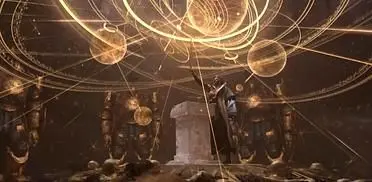In Assassin’s Creed: Syndicate, you’re going to climb a lot of buildings, murder a lot of templars, and hang out with a lot of historical figures. If that sounds familiar, you’ve probably played an Assassin’s Creed game before. Syndicate adds some fun new features to the series, but after seven consecutive games in seven consecutive years, the formula is absolutely wearing thin.
Syndicate casts you as the Frye twins, Jacob and Evie, orphaned assassins who are trying to free London from a templar tyrant with a comically evil mustache. You’re gonna see a lot of nefarious facial hair as you shank a lot of post-industrial revolution capitalists. This is a Dickensian view of Victorian London, though obviously viewed through the lens of a modern video game, filled with child workers you need to lead to freedom through violence.
The biggest feature is the ability to play as either of the twins. While story missions will generally cast you as one or the other, when exploring the world and doing side activities you can swap between them with a quick menu option. Money and gear you acquire with either character is shared between them, and while experience and skill points are also shared, your choices on the skill tree are locked for one or the other. That’s weird, because while the story wants to cast Evie as the stealthy, subtle type and Jacob as a brash brawler, their skill options (aside from a handful of late-game abilities) are exactly the same and the two control in exactly the same way. It seems that maybe you’re supposed to spec each character in different directions, but by the end of the game I had enough skill points to nearly max out every skill tree anyway.
Jacob and Evie also don’t interact outside of cutscenes. One of my favourite parts of Syndicate was actually its final mission, where each objective has you switching between the twins to accomplish the final goal. It’s a fun mission that fits in well with the narrative arc of the characters, and it’s a shame there weren’t any more like it. The two playable characters feel, more than anything, like a way for Ubisoft to include a female protagonist, a thought that’s borne out by the fact that Evie’s quest fades into the background in the game’s latter third and Jacob starts to feel like the “real” hero of the story. Which is a shame, because Evie is absolutely the more likeable and endearing of the two–Jacob is a pretty generic video game protagonist, eager for violence and full of sarcastic quips, though he does grow as the story wears on.
Syndicate’s cast is diverse and likeable, filled with psuedo-historical approximations of figures from Dickens to Darwin. The performances are universally good and the dialog is sharp, but the plot beats and the story as a whole are unremarkable and generally pretty predictable. At the start, Evie’s looking for an ancient artifact and Jacob wants to kill the big Templar boss, and the rest of the story is a mildly curvy road that gets them there. The endearing cast does a lot to make the story more engaging, but it ultimately feels more like a series of anecdotes rather than a cohesive tale.
Digital London is a split of historical recreation and video game level design. Crossing the Thames, for example, is a matter of hopping from boat to boat and across narrow bits of flotsam. You can hijack carriages Grand Theft Auto-style, and these vehicles control exactly like video game cars that you can drive straight through pedestrians and street lights. This stuff is absolutely absurd, and it’s walking a very fine line between fun and laughable. Syndicate’s also not particularly interested in the complicated climbing puzzles that dominated the early games. Not only is climbing the most streamlined it’s ever been - I ran into maybe one or two walls in 20 hours that I couldn’t just climb straight up - but the new grappling hook will get you instantly to the top of nearly any tower in London. On one hand, it’s great to be able to zip up the side of a building in a couple seconds, but on the other, all the traversal is laughably simple. The grappling hook removes some of the frustration that’s always been associated with Assassin’s Creed, but also a good deal of the challenge.
At the start of the game, London is in the grasp of Templar-controlled gangs, and your ultimate goal - beyond assassinating Templar bosses - is to take over each district and install your own gang as the head of the London underworld. Completing activities marked on the map, like kidnapping high-ranking Templars and freeing child workers from Templar-controlled factories, will clear that area of the map, and once each area of a given borough has been cleared, a gang war will open up. Complete that, and all the red-coated thugs in that area will change to green coats and start working for you. It’s essentially a checklist of things to do. It feels less like freeing a city from oppressive control and more like ticking a bunch of boxes. It’s fun to see those boxes get ticked, but the process is rote and mechanical.
The missions are for the most part typical of the series, with a lot of “fight these thugs,” “infiltrate this building,” and “assassinate this guy.” Fail conditions like “don’t get spotted” and “don’t kill anyone” are mostly limited to side objectives and, thankfully, the bane of every Assassin’s Creed player–the tailing and eavesdropping missions - have been all but completely removed. But the kidnapping mechanic they’ve been replaced with is only somewhat better. There are a lot - a LOT - of missions where you’ll need to sneak up behind a target, twist his arm behind him, and walk him out of the area without arousing suspicion. You don’t have access to any of your tools while holding a prisoner, and if you let them go they immediately start running, so getting around guards is a matter of watching their patrol routes (which are prone to glitchy pathfinding) and walking very, very slowly toward an exit point. These kidnappings show up throughout the game, are rarely fun, and a particular mission which forces you to do three in a row was about as infuriating as any Assassin’s Creed mission ever has been.
On the other hand, the assassinations themselves - big missions where you have a specific, named target to kill - are a highlight, and one of the best things the series has done in a while. These missions are set in large, open locations with lots of guards and multiple entry points, and you need to scout out the area to find opportunities for infiltration. You might need to steal a key to get access to a secret passage, drop poison into a drink pitcher, or disguise yourself as a cadaver to get close to the mad doctor you need to kill. Each of these missions feels a lot like Hitman, and while they’re far simpler than that, with just a few specially designated “unique” options, they’re a really exciting departure from the series’ historically poor mission design.
Syndicate is pretty stable and mostly bug-free, even on PC. I ran into a couple of weird issues here and there, but there was only a single game-breaking issue, which had a pretty simple fix. Performance with recommended settings on my GTX 960 hovered around 40-60 FPS, which I found totally acceptable for a single player adventure on a mid-range PC. The biggest problem was that about once an hour, the game would freeze–looking like a hard lock–for about five seconds before returning to normal. I’m not sure if that’s an issue that can be patched or if it’s something specific to my hardware, but it’s worth being aware of.
ASSASSIN'S CREED SYNDICATE VERDICT
Syndicate is another Assassin’s Creed. Its characters and setting are likeable, it’s not a technical mess, and it has some fun new features, which certainly puts it in the upper tier of the franchise since Brotherhood. This is another pseudo-historical playground, another set of Templars to stab, and another checklist of collectables to grab. It’s a solid entry in a series that’s been far too prolific, and while Syndicate is good, it’s tough to be excited about it.
TOP GAME MOMENT
Driving Mrs. Disraeli. She’s a hoot.
Good vs Bad
- Likeable cast
- Open world that’s fun to traverse
- Fun new mission types
- Many frustrating missions
- Unexciting, predictable plot
- More of the same for the series








.webp)